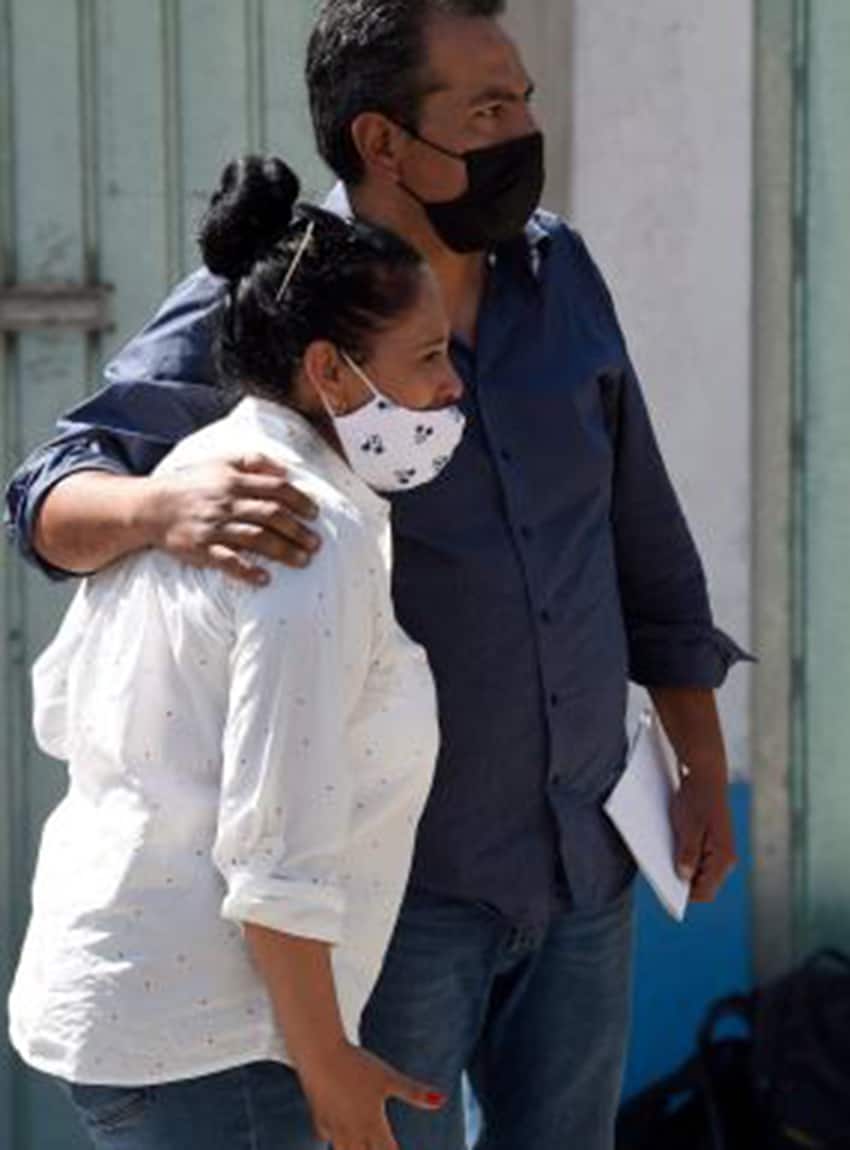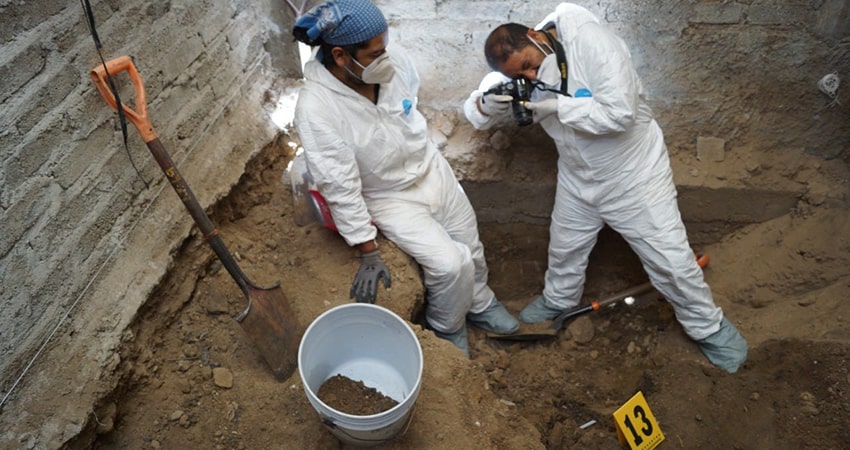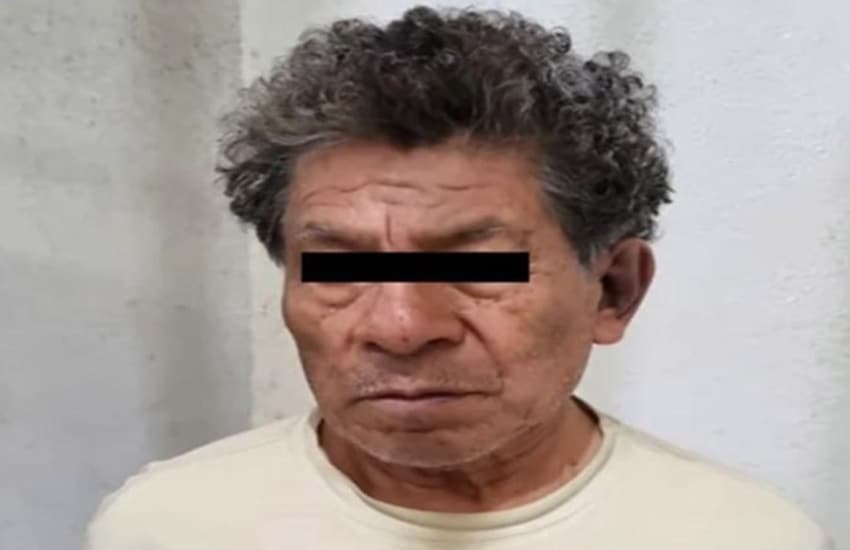A suspected serial killer who was arrested last week would likely still be at large had his final victim not been the wife of a police commander.
Andrés N. was taken into custody at his home in Atizapán de Zaragoza, México state, where authorities found women’s belongings such as shoes, makeup and voter IDs, notebooks filled with women’s names, and thousands of bone fragments. The suspect reportedly admitted to killing and eating numerous women over a period of 20 years.
The Associated Press (AP) said in a report published Thursday that due to a lack of funding, training or professionalism, prosecutors in Mexico have “routinely failed to stop killers until the bodies pile up so high they are almost unavoidable.”
A couple who admitted to killing at least 20 women were only detained after they were caught pushing a baby carriage filled with human remains down a street near their home in Ecatepec, México state, in 2018.
Andrés N.’s long run of avoiding the law came to an end after a police commander identified by AP only as Bruno assumed the responsibility to investigate the disappearance of his wife himself.

The 72-year-old suspect, a former butcher, is accused of murdering 34-year-old Reyna González Amador on May 14. Authorities found parts of González’s body, a bloody hacksaw and a knife on a table in a makeshift basement in the suspect’s home.
Sergio Baltazar, a lawyer for the victim’s family, told AP that Bruno had the same frustrating experience as most Mexicans when he reported his wife’s disappearance to prosecutors’ offices. “The detectives really let him down,” he said. “They didn’t want to help him.”
However, unlike most Mexicans, as a police commander Bruno had the means to conduct his own investigation.
“Bruno did a lot of the investigative work on his own,” Baltazar said. That work included reviewing footage captured by police surveillance cameras.
According to AP, Andrés was a friend of Bruno and Reyna’s family, and the victim had been scheduled to take the suspect with her on a semiweekly trip to a wholesale market to purchase supplies for her small cellphone shop. The septuagenarian, nicknamed “El Viejo” (The Old Man) by the family, was considered a kind of “charity case” by the couple and their children, AP said, noting that they invited him to their home and gave him meals. He was to accompany Reyna in order to help her carry supplies she intended to purchase in the market.
After his wife failed to return home, Bruno called Andrés, who told him that Reyna didn’t show up for the planned shopping trip. But security camera footage reviewed by Bruno showed that she had entered the street where Andrés lived and never exited.

Two days later, Bruno, having become extremely worried about the wellbeing of his wife, went to Andrés’ house with Reyna’s brother. He ordered police to wait near the man’s home.
Andrés became nervous but allowed Bruno into his home, AP said, noting that the old man told the victim’s husband that he wouldn’t find anything. But inside the house, Bruno dialed his wife’s cell phone and heard it ringing below the floor of the home in “what turned out to be a makeshift basement with a narrow entrance,” AP said.
“He discovered what remained of the body. Andrés tried to run, but the waiting police swooped in.”
Baltazar said the suspect admitted to some murders — as many as 30, according to some media reports — but then became reticent.
“He says there are five that he remembers, but then when they showed him the notebooks [with the lists of names], he says he doesn’t remember,” he said.
The lawyer also noted that Andrés admitted that he made recordings of murders he committed.

Prosecutors have not yet offered an estimate about how many victims there were, but based on the ID cards and bone fragments found at Andrés’ house and the names in the notebooks, there could be 15 or more, AP said.
Given the age and physical condition of the suspect, prosecutors should investigate the possibility that Andrés didn’t act alone, Baltazar said.
“It is hard to believe he had the strength to do this himself. There were probably accomplices,” he said.
However, it appears unlikely that prosecutors will broaden their investigation as law enforcement officials in Mexico are generally happy to attribute as many murders as they can to a single suspect, even when there is suspicion that others were involved.
María de la Luz Estrada, head of the National Citizens Observatory on Femicide, told AP that it seems that investigators favor lone serial killer theories so that they don’t have to carry out more thorough investigations.
“Talking about serial killers in the context of so much impunity worries me because what we have seen is that [authorities] don’t investigate,” she said.
Andrés, however, seems certain to be found guilty given the overwhelming evidence against him, provided he makes it to court: this week, inmates at the crowded prison where he was in custody attempted to kill him, forcing authorities to transfer him to another facility.
Source: AP (en)
